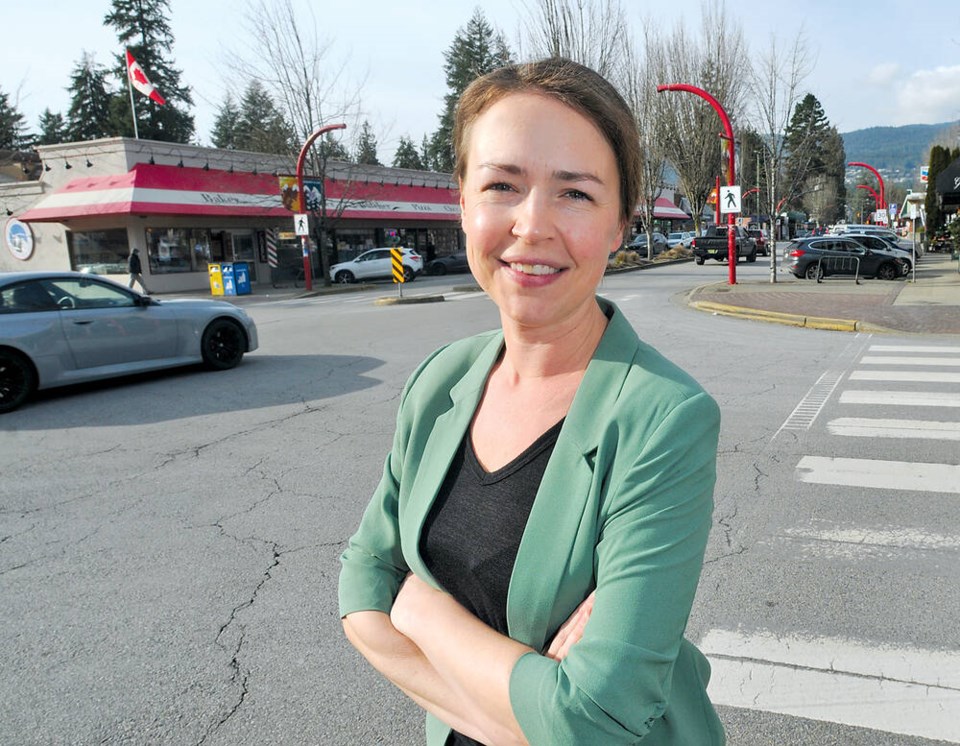Statements made on social media this week by BC United candidate Caroline Elliott have kindled a debate about the use of the term British Columbians, particularly in reference to Indigenous Peoples.
Elliott, who was recently named the provincial party's candidate in West Vancouver-Capilano, took to X (formerly Twitter) on Wednesday to express her disagreement with language on the BC Government website. In a screen capture of the text, it’s recommended that public servants refer to Indigenous Peoples as “people living in B.C.” rather than “British Columbians,” as many identify as members of their own sovereign nations, “and do not consider themselves part of one that has actively worked to assimilate their people.”
Elliott wrote: “I didn’t believe this when I first saw it but it’s actually, unbelievably true. BC’s NDP govt says we shouldn’t use the term ‘British Columbians’ because it is ‘exclusionary.’”
“People are living on streets & dying on waitlists and the NDP is spending our taxes on this nonsense,” she posted.
Her post garnered hundreds of likes and reposts, as well as many critical comments.
Sḵwx̱wú7mesh (Squamish) decolonization educator Ta7talíya Michelle Nahanee says Elliott’s statements were harmful and reflect colonial thinking. It’s interesting that Elliott chose to speak about people living on the streets, said Nahanee, when a lack of being able to identify and function in society as a person wishes – especially for Indigenous individuals – is a root cause of separation, addiction and illness.
Nahanee has worked with organizations to decolonize their practices and improve equity and inclusion. Her clients include the City of Vancouver, Pivot Legal Society and Vancouver Coastal Health.
'Not allowing me to say this is who I am in this space, that’s what’s wrong'
While Nahanee lives in the territory known as British Columbia, she identifies as a Squamish person first.
“I prefer the Squamish place name. That’s what I would prefer to identify as,” she said. “Erasing that and not allowing me to say this is who I am in this space, that’s what’s wrong.”
“And that’s the colonial harm that Elliott wants to continue when she dismisses ideas like allowing people to say that they live in this territory, in British Columbia, versus ‘I’m a British Columbian.’”
In response, Elliott says that Nahanee is absolutely welcome to choose how to identify herself and refer to the place she lives.
“I would never presume to tell her how to refer to herself,” Elliott said. “The issue I face is with this NDP government endorsing the idea that the words ‘British Columbians’ are offensive, or exclusionary, when, as to my original point, the term British Columbians, I see as unifying.”
“I fully accept that there’s prejudice, there’s injustice, there’s racism, there’s all those really awful things that exist in any society,” she said. “And I truly believe one of the strongest tools we have, and I think most British Columbians would agree with me, is the power of commonality.”
Conversely, Nahanee said Elliott’s view that British Columbians is a term that unites all residents instead erases real differences.
“It’s a lot like saying, ‘We’re all equal,’” Nahanee said. “When you say that, you erase the fact that we do all start out in different places in terms of class and race and equality, and equity.”
In her opinion, the province’s language guide for writing about Indigenous Peoples was well written.
“I think it was sensitive and nuanced for the province to speak about identity in that way, and to try to help people like Elliott see a bigger picture of the harm that the dominant-culture identity imposed, without sensitivity, to what colonialism means and how exclusion shows up today.”
In the past, Nahanee has been part of conversations that consider provincial names other than British Columbia, which ultimately ties back to Christopher Columbus and his legacy.
“It’s really time to be more comfortable with being honest about what’s happened,” she said while pointing to a movement currently underway to change the name of Powell River. “Here are people deciding, ‘Do we want to carry this name of somebody who was a minister of Indian affairs?’”
BC United candidate 'very proud' of British Columbia name
Elliott said she would never support renaming B.C.
“We see similar conversations around statues and historical figures and that sort of thing, and I think that’s stuff that we have to contend with,” she said. “When it comes down to the name of British Columbia, I feel pretty strongly [about] British Columbia, very proud of that name.”
Referring to the amount of attention that her social media post got, Elliott said she was both surprised and not surprised, “because I think there’s a lot of public exasperation with stuff like this, because I think a lot of people do feel this stuff is going too far.”
“It’s counter to most people’s intuition, because I think most people ultimately understand the cohesive power of commonality, and they’re very worried about the politics that this kind of thing represents,” she said.
I didn’t believe this when I first saw it but it’s actually, unbelievably true. BC’s NDP govt says we shouldn’t use the term ‘British Columbians’ because it is ‘exclusionary.’
— Caroline Elliott (@NVanCaroline) February 21, 2024
People are living on streets & dying on waitlists and the NDP is spending our taxes on this nonsense. pic.twitter.com/3KSMrwQ3to



